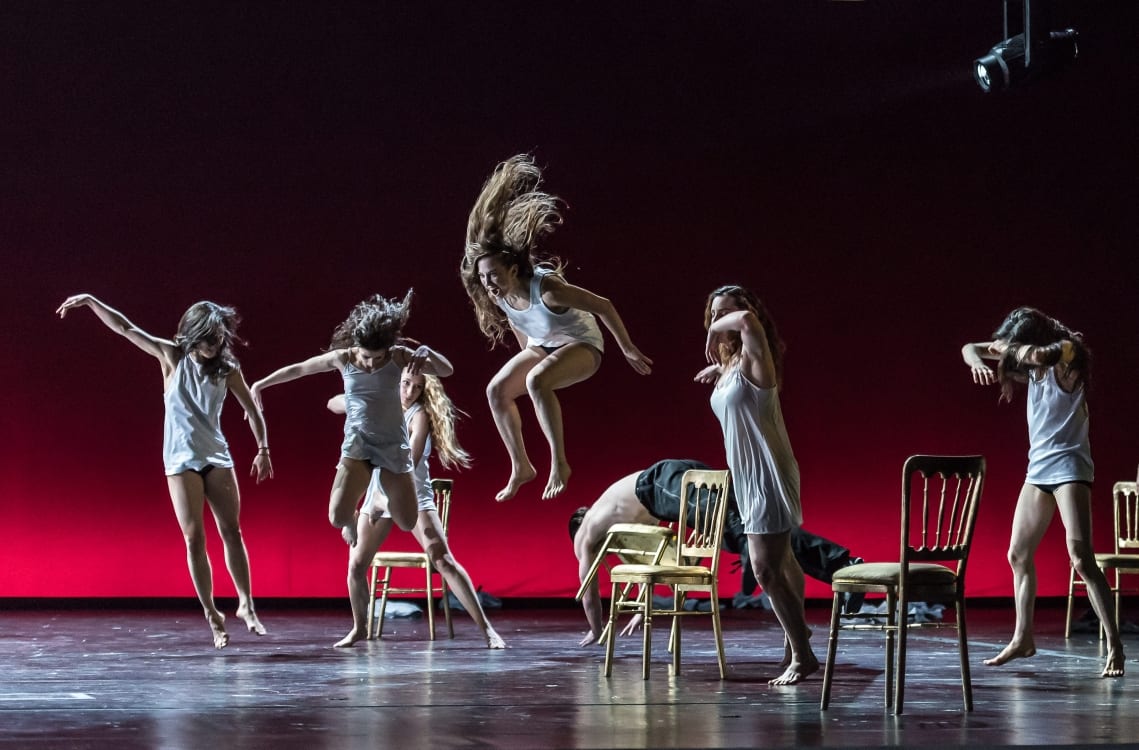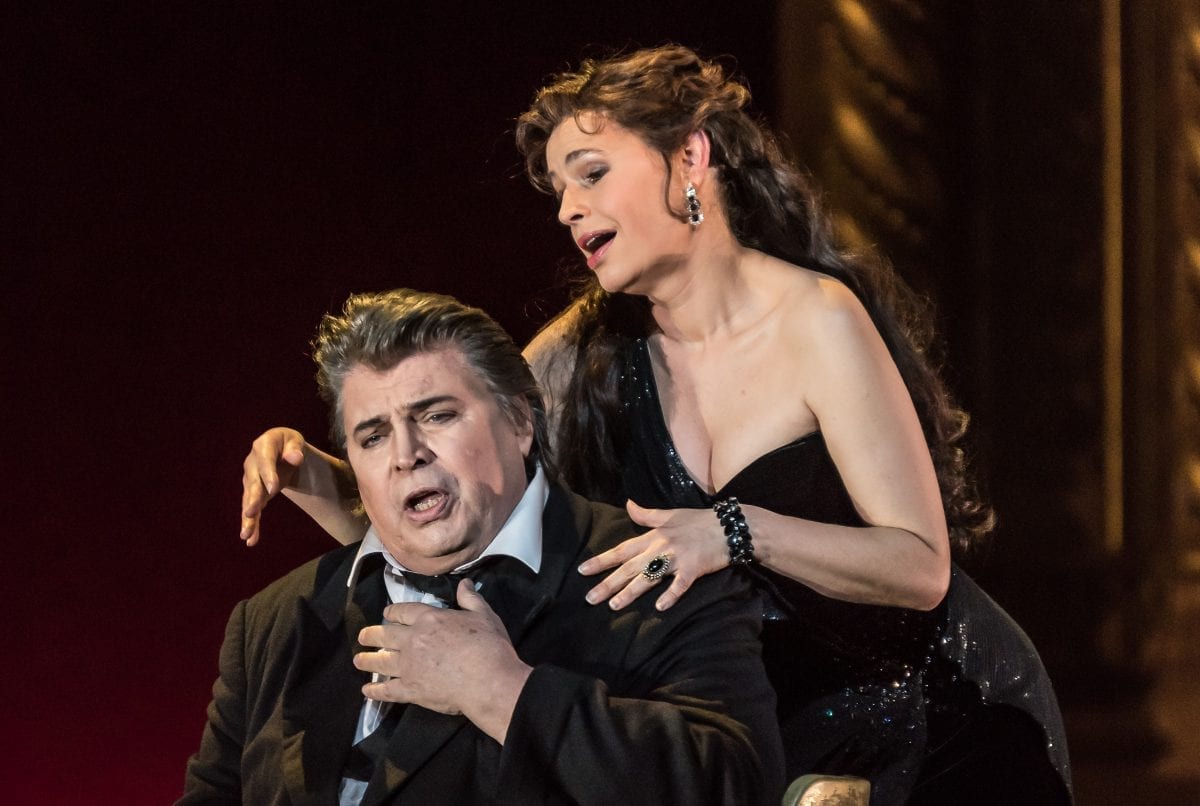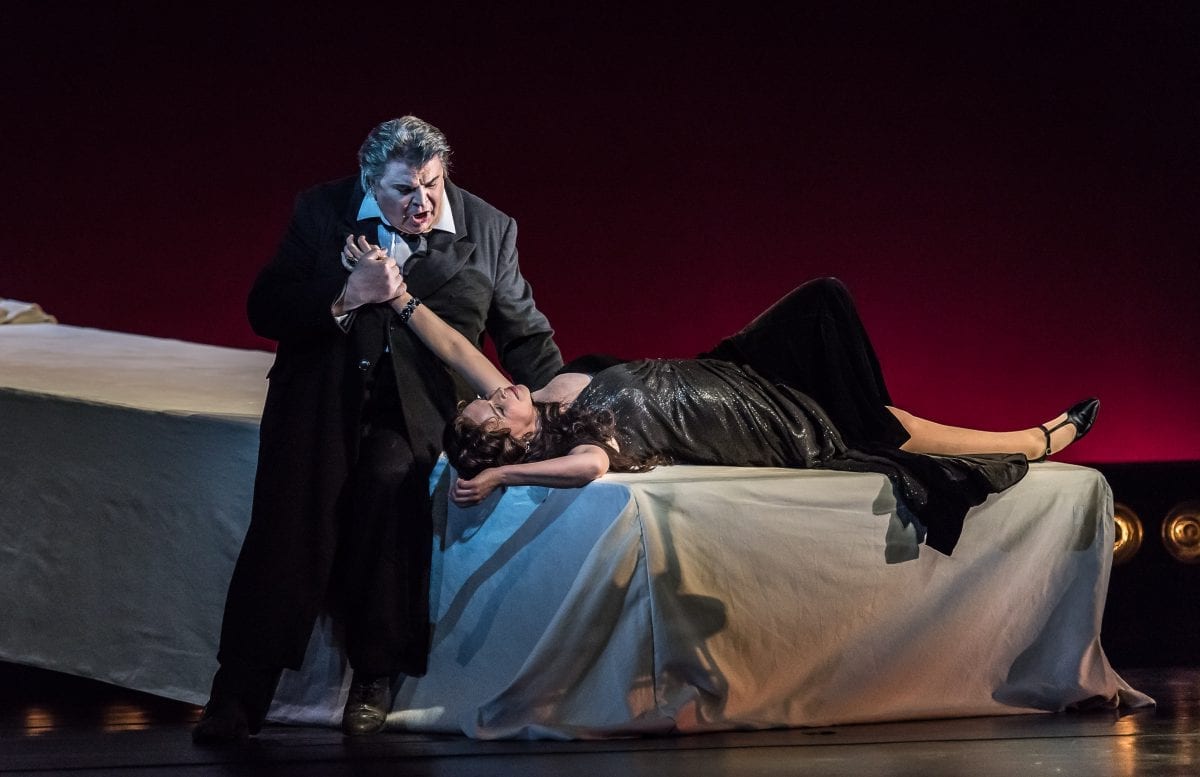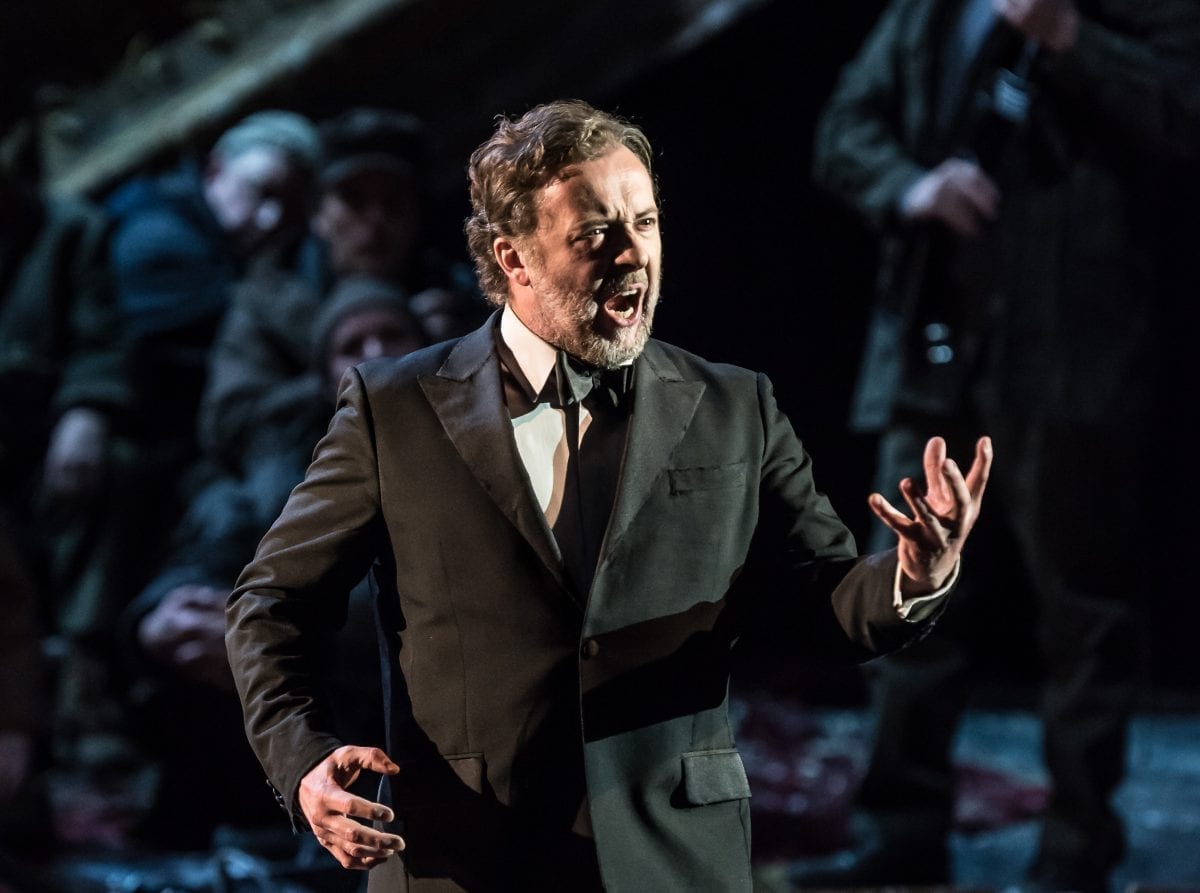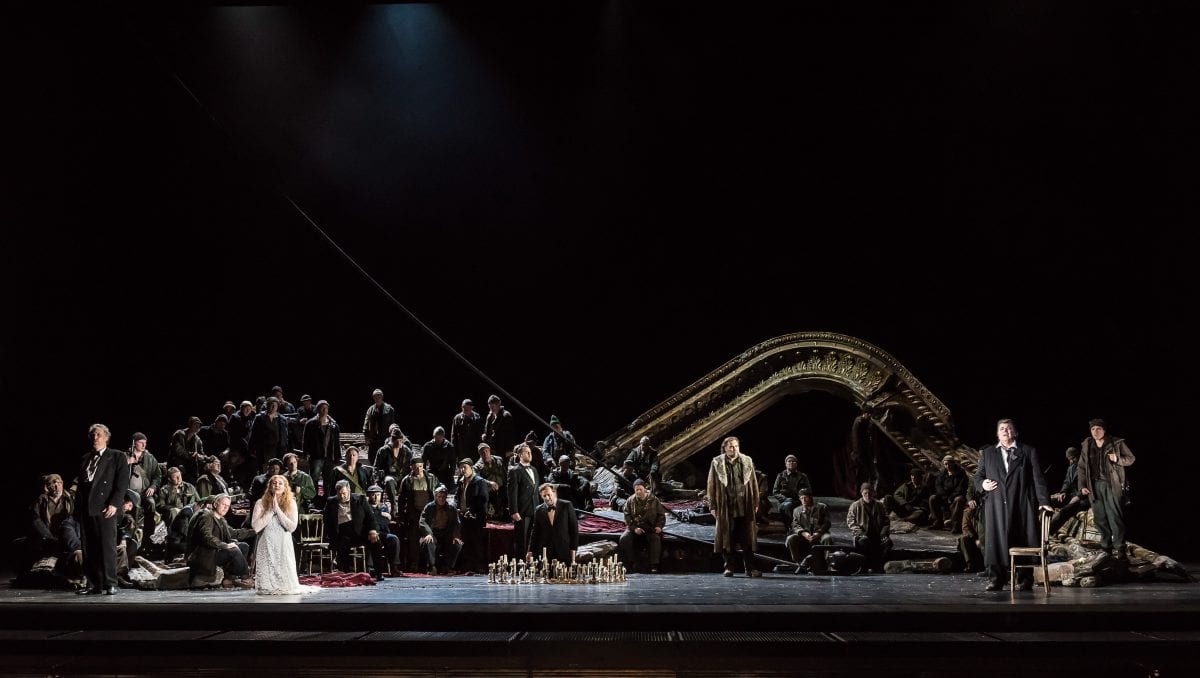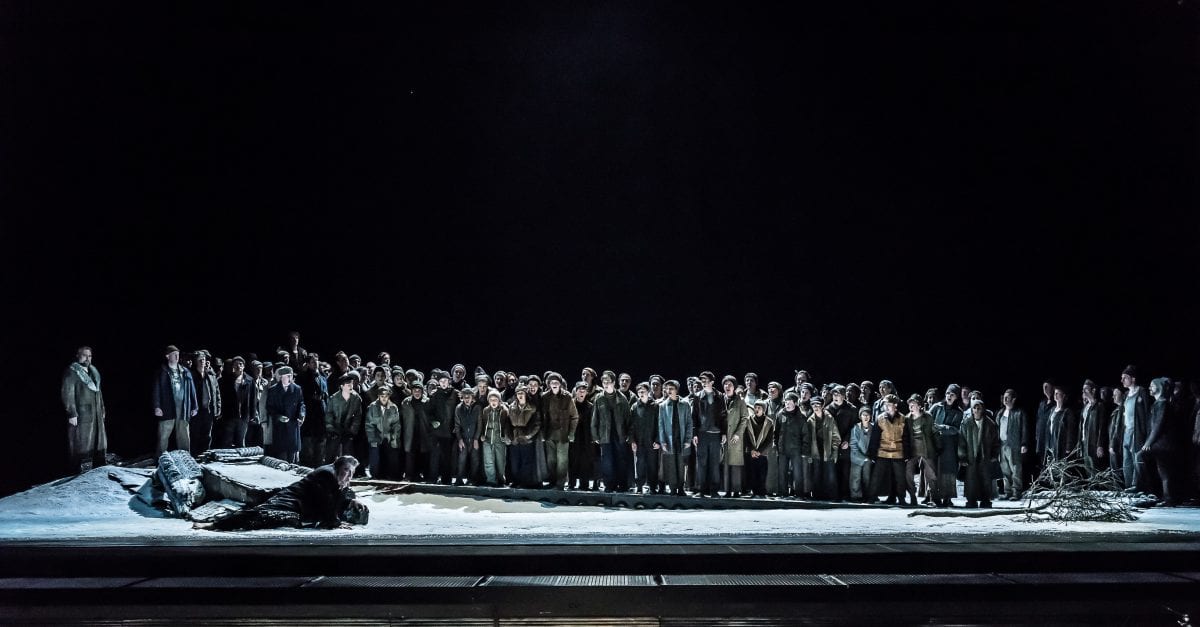Tim Albery’s 2010 production of Richard Wagner’s Tannhäusser, in the 1875 Vienna version, returns to the Royal Opera House for its first revival. The opera evolves around the fierce struggle between sensuality and morality, profane love and redemption.
The narrative is a conflation of two Germanic legends spiced by Richard Wagner. One is a variation on a medieval tale of Tannhäuser who strayed into the Venusberg, the realm of the goddess Venus, whose lover he becomes, forsaking the virginal Elisabeth, niece of the Landgrave of Thuringia, who loves both him and his music. The other draws on the Wartburg song contest, which results in the revelation of sins committed in Venusberg.
Tannhäuser (Peter Seiffert) has to choose between Venusberg and Wartburg. The locations are mere metaphors. Venusberg embodies immortality, debauchery and eroticism, where Tannhäuser finds refuge and solace in the bosom of the pagan goddess Venus (Sophie Koch) after being shunned by mere mortals who failed to appreciate his talent as a singer. Although he has no sense how long he has been enjoying carefree life, sexual satiety stirs longing for Elizabeth (Emma Bell), and his fellow mortals.
The Royal Opera House orchestra, under the baton of Hartmut Haenchen, fills the auditorium with electrifying music drama. The prelude that leads into the Venusberg ballet score opens with iridescent strings complemented by warm woodwinds. The brass effectively delivers mellow lyricism and penetrating reverberations to a tapestry of sounds fusing mythology and reality. The pace throughout is measured yet vigorous. The backdrop to the overture is a an energetic modern dance, choreographed by Jasmin Vardimon, that gives a glimpse into the eroticism and sexuality that govern life at Venusberg.
The staging and performance in Act One of the opera’s three acts, lacks the vigour and the dramatic tension of the overture and subsequent two Acts. Venus attempts to cajole her lover to stay using a complex and challenging musical language falls on deaf ears. Koch’s Venus vocally and dramatically fails to allure the audience. Her voice lacks the timbre and depth necessary for the role. Seiffert’s Tannhäuser takes a while to warm up in the first act and seems to force some passages in Act II. However there is some fine singing in particular in the “Rome Narrative” of Act III where Tannhäuser relates to his friend Wolfram (Christian Gerharer) his grief, regret and utter despair of his pilgrimage to Rome and eventual rejection of his repentance by the Pope.
Gerharer’s Wolfram commands the stage without evident imposition. Throughout, his singing is understated yet full of insight. Bell’s Elizabeth also hits the mark by conveying a deep understanding and insight of her character.
Albery’s direction attempts to introduce some contemporary elements into this production. Unfortunately this does not always work. There are moments of thematic disengagements, which divorce the music from the unfolding narrative. For instance, when Seiffert’s Tannhäuser returns to life among mortals he is in a warzone where the remains of Venusberg are visible and locals are armed with Kalashnikovs. There is little sense piety or of a society governed by religious values, which overshadows the significance of its profound indignation at Tannhäusser’s sexual waywardness.
This may just be the point that Albery is trying to make, namely highlighting the society’s hypocrisy. After all it is only Elizabeth’s intervention that offers Tannhäuser redemption, not even the Pope could or would help him. Unfortunately the Kalashnikovs distract from and add nothing to the drama but seem wholly out of place.
Overall this is a fine production where the divine score, orchestra, chorus, and a few singers make the evening quite magical.

